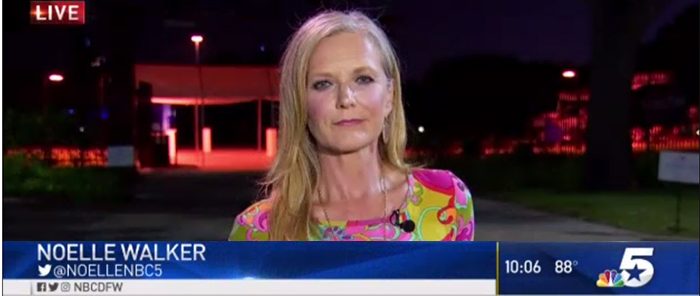
The Show Must Go On
Account Executive
Burns360
Sometimes in the world of public relations, your clients end up on the wrong side of the news cycle. And as PR professionals, it is our job to make sure the situation doesn’t escalate, lead to revenue loss, or worst of all, damage our client’s reputation.
Trust me on this one. An excellent reputation is difficult to build. But when it’s damaged, it’s even harder to repair.
But what do you do when the negative attention your clients are receiving isn’t their fault at all? That happened recently with one of our clients, Shakespeare Dallas.
The situation:
If you tune into the news regularly, you’ve probably heard about it.
In July, a New York-based theater organization called Shakespeare in the Park portrayed President Donald Trump as Julius Caesar in its rendition of the famous play. Staying true to the timeless script, this character was assassinated which didn’t sit well with a large portion of the population, leading to threats, the loss of sponsorships, and a great deal of media attention.
Even though these plays took place nearly 2,000 miles away and Shakespeare Dallas has no connection to the New York-based organization, the backlash was felt all the way in Texas. Shakespeare Dallas was suddenly inundated with negative emails, promises to boycott future performances, and even threats of violence that required FBI attention. Most of the backlash came from people who incorrectly tied all Shakespeare performance companies together and gathered contact information via the web.
With performances of Quixote and The Merry Wives of Windsor underway, Raphael Perry, executive director of Shakespeare Dallas, had major concerns for the safety of his performers, the audience, and the potential impact on crowds.
The response:
This situation was challenging. There was no need to take responsibility, issue a public apology, or execute any one of the crisis communications tactics that make clients cringe. We did, however, have a duty to clear the air, and considering the story was claiming the front pages of national news outlets, we knew we would have leverage with the media to do so.
So that’s just what we did.
We picked up the phones, sharing the story with our various connections throughout the local media. We offered reporters from local newspapers, television stations, and magazines everything they needed to create a juicy story including interviews, copies of the emails, and opportunities to shoot video footage.
And they bit. Within 24 hours, Shakespeare Dallas stole the local headlines for the right reasons. All four of Dallas’ major television affiliates (WFAA, KDFW, KXAS, and KTVT), as well as the Dallas Morning News, D Magazine, and the Dallas Business Journal all picked up the story.
And in today’s digital media world, the story didn’t stay local for long. World-renowned newspapers, including the Washington Post and Boston Globe reported on it, and websites of several top publications, like Vanity Fair and Time Magazine, also swooped in. The story was even picked up in William Shakespeare’s home country, England, by BBC News.
Shakespeare Dallas was not only able to clear up the confusion and separate itself from the negative attention, but was also able to promote its offerings both locally and nationally.
The result? During preview nights for Quixote and Merry Wives of Windsor, the Samuell Grand Amphitheater was packed to capacity, with crowds five times larger than they typically average so early in the season.
The lesson:
In crisis communications, there isn’t always a bright light at the end of the tunnel. Sometimes your client legitimately messes up, and as uncomfortable and challenging as it may be, the best option is often to come clean, apologize, and present a plan for future improvement.
But in this case, the negative coverage was a real boon for Shakespeare Dallas. Thousands of people attended performances throughout the summer season, and were treated to red carpet-worthy productions that put Dallas, not New York, in the spotlight.


